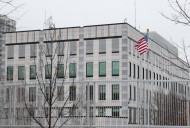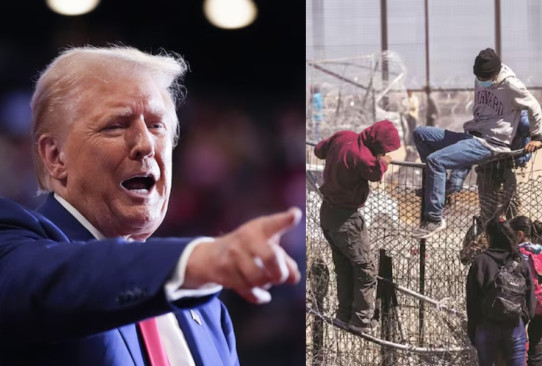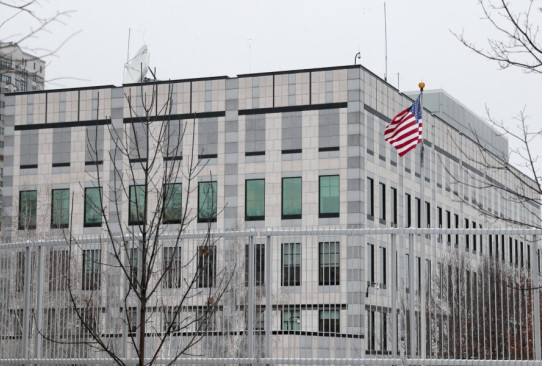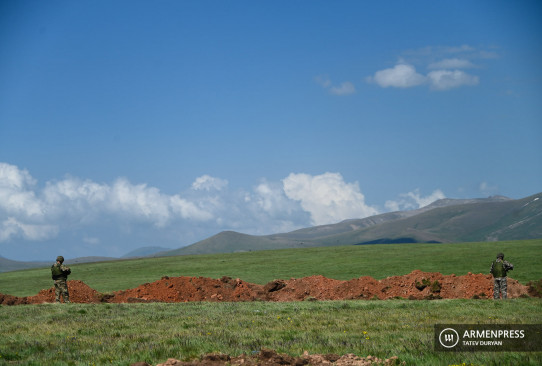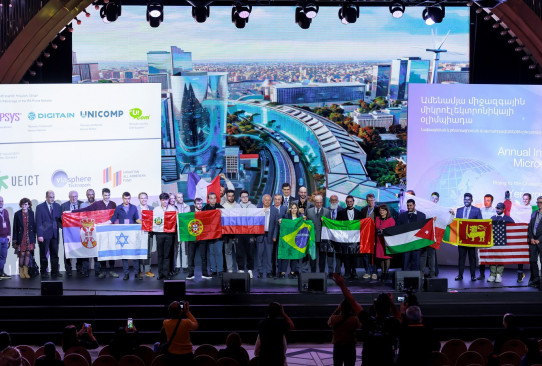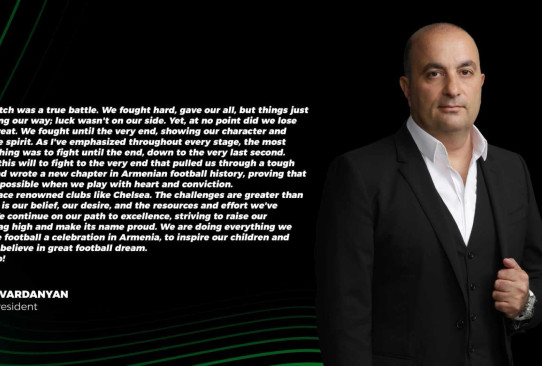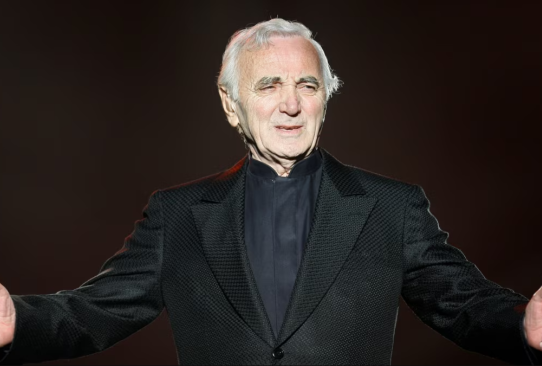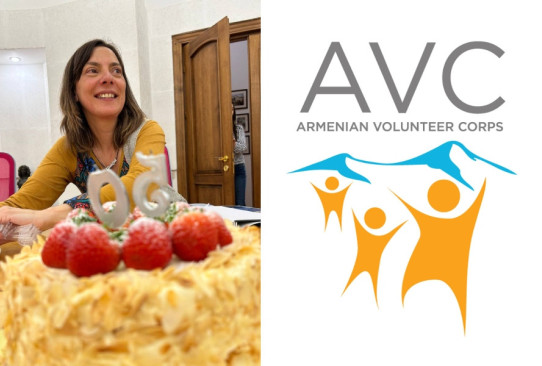Tragedy of Armenian Genocide– story of rebirth in California
One hundred years ago, 1.5 million Armenians were exterminated in their ancient homeland during the years 1915 to 1918.
The state of Turkey to this day denies the genocide took place.
By Mark Arax
The Sacramento Bee
I used to hear the stories straight from my grandfathers, one a priest and the other a poet-farmer. It was gruesome, beyond belief, but all true, they said. The death marches across the Anatolian plain, the Armenian men whose heads were sliced off and put on display, the Armenian women raped and then set to fire, the babies thrown in the air and impaled on the swords of the Ottoman gendarmes and their Kurdish helpers.
“Forty-two people on both sides of my family, and I was the only one who survived,” the Rev. Yegishe Mekhitarian, my mother’s father, told me. And then he proceeded to name each and every one of our “martyrs”: his father, mother, brothers, sisters, aunts, uncles and cousins. “Forty-two of them. I don’t know how, but God saved me. Only me.”
The Armenian Genocide began 100 years ago, in late April of 1915, when the leaders of Ottoman Turkey rounded up our writers and professors and civic and political leaders, and herded them away from the international city of Constantinople, away from the world’s witness, and into the killing fields of Anatolia, where the world had no eyes.
Two-thirds of our tribe, 1.5 million Armenians, were exterminated in their ancient homeland during the years 1915 to 1918, the first genocide of the 20th century, a crime that the state of Turkey to this day congenitally denies. Indeed, Turkey’s denial has become a genocide on top of the genocide, the erasure not of flesh and blood but of memory.
The thing about a century-old crime is that it leaves no survivors, no storytellers of the first hand. In my family and every other Armenian family, the survivors are all gone. If there’s a story now to be told, it’s not in our Medz Yeghern, or “great calamity,” but how the Armenians, and all the other tribes who have ever outlived another tribe’s attempt to wipe them out, still laugh, sing and pray. “For when two of them meet anywhere in the world,” William Saroyan once wrote, “see if they will not create a new Armenia.”
And so a few weeks ago I headed down Highway 99 looking for a fellow Armenian with whom I could mark this centennial day’s commemoration, an Armenian who could tell me a story not of our tragedy in Anatolia but of our rebirth in California. As it happened, I found him on the outskirts of Fowler, just south of Fresno, in the sandy loam of his farm.
Fowler was a raisin town before it became an apricot town and then a peach town and then a citrus town and now an almond town, like all the rest. The crops changed but the names of the growers endured. Bedrosian. Parnagian. Simonian. Gavroian. For centuries, the “ian” had been the way for a Turk to identify an Armenian. The “ian” literally means “the son of.” Thus, Housepian is the “son of Joseph” and Topalian is the “son of the crippled one” and Medzorian is the “son of fat ass.” The Turks and Armenians shared a sense of humor.
I was looking for a vineyard that belonged to the Rustigian family, but as I pulled up to the address, I could see that the vineyard was no more. And then out came Harry “Rusty” Rustigian, 93 years old, in work shirt and work pants and work boots. He invited me into his ranch house.
“What do you do?” he asked.
“I’m a writer,” I said.
“I know that. But outside of that? That’s all you do?”
He had me laughing already. He was laughing, too.
He was built like a bull, and his hands were the size of old-fashioned baseball mitts. They had the same texture, too.
His wife, Virginia, née Hagopian, led us to the kitchen table. Harry was born on these 40 acres, she said proudly. His bedroom in the old wood house – the house that burned down – was right where the kitchen now stood. Ninety-three years and Harry had never left.
His father and mother had come from the same Armenian province on the vast Anatolian peninsula in what is now eastern Turkey. Their kin had lived there for centuries, side by side with the Turks, friend and foe. A Turkish neighbor in 1912 told the Rustigians that bad times were coming for the Armenians. “Get your sons out as soon as you can.” He didn’t need to say more. The Rustigians had already gotten lucky once, outlasting the massacres of 1895.
So Harry’s father, a hard worker, landed in the U.S. in 1913. Drawn by the promise of vineyard life, he settled in the good earth of Fowler. This is where Harry’s father and mother met in 1921.
“She had gone someplace and he had seen her, and he told this fellow, ‘If she’ll marry me, I’ll marry her right away.’ This fellow told my mother, and I guess that’s all it took. They got married right away.”
There was no dawdling back then. When you go through the things his parents had gone through, you don’t wait on life. And so life happened. Harry was born in 1922, the first Rustigian raised outside historic Armenia. The planting of muscats by his father was a transmission of culture. The Armenians had been a grape people going back 3,000 years. Harry wonders if the muscats were more than that, if his father was telling the Turks “nice try, but we’re still here.”
There was little talk of the past, but Harry got glimpses. His mother, stronger than strong, would sometimes cry for no reason. His father, mostly a gentle man, could turn fierce out of nowhere. There was the day in the early 1930s when the thugs from Sun Maid Raisins pulled up to the farm in five Model T Fords. They were looking to sign up growers who were sending their raisins to independent packers – at gunpoint, if need be.
Harry, 12, and his mother and little sister were cutting nectarines to dry. All of a sudden, his father grabbed a huge wooden grape stake and told the Sun Maid boys to move no farther. “My little sister was crying and my mother was shouting ‘No,’ and all I could do was stand there. My father told them, ‘You come one step more, and I’ll lay this grape stake over each of your heads.’ He wasn’t a big guy, but boy was he mighty.
“These guys looked at each other and turned around and walked back to their cars. Before they took off, one of them shouted, ‘We’ll be back!’ My dad told them, ‘Next time, there’ll be a gun in your face.’ ”
Once, Harry got his mother to tell him about the massacres. On the march across the desert, she had to eat grass and put her lips to the ground to drink what little water puddled in the hoof prints of horses. She kept on walking only to learn that her parents, three sisters and one brother had died.
“She told me she lived because her mother had given her some gold, and she had used this gold to buy herself out of harm’s way. I might have asked another question or two, but she started to break down. She lived to 93, but every time she talked about it, she had to stop.”
To honor his father, Harry stayed an independent raisin grower. It tugged at his heart in 1950 to pull out his dad’s muscats and plant Thompson Seedless. The Thompson grape made a good raisin and could always be sold to the wineries in raisin bust years. He and Virginia raised two boys and a girl and built a nice brick house on those 40 acres. With his oldest son, Dennis, beside him, he did the tractor work and sulfuring, and most of the pruning, too. In the good years – and there were plenty of them – they put away $30,000 or $40,000 at each harvest’s end.
After the harvest last summer, Dennis’ son was walking to his car one night in Arroyo Grande when a man out of nowhere sucker-punched him. He died of a brain hemorrhage. Dennis had no more hahvas, the Armenian notion of life force, for farming. Harry had gotten too old to battle the ups and downs of a raisin market turned even more volatile by the supply of raisins from Turkey, of all places.
Dennis told Harry they needed to pull out the vines and plant almonds. Because the profit margins on almonds made sense. Because nuts, unlike grapes, could be picked by machine. Because it was time, after a century, for a change.
A few weeks ago, Harry stepped outside, hesitantly, as the Caterpillar D-9 took to his field. Vine after vine, row after row, the big angled blade made easy work of it. “I didn’t lose sleep, but boy it was hard on my heart. Because you think back to what you had to go through, what your father and mother had to go through, to keep it alive. The grape, you know, goes way back in our blood.”
As the new trees went in, he started to laugh at the sound of it: Harry “Rusty” Rustigian. Almond grower. For old-time sake, he kept one gnarled Thompson vine standing next to the old water pump. “That’s all she wrote,” he told himself.
Videos
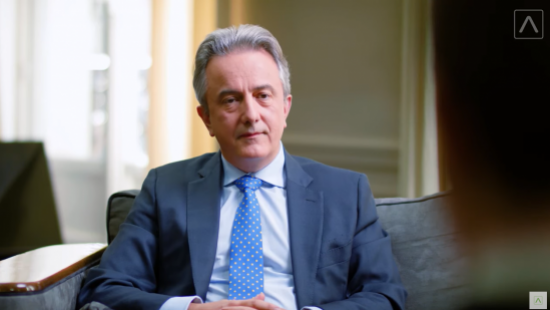
Interview with Francis Malige, EBRD Managing Director
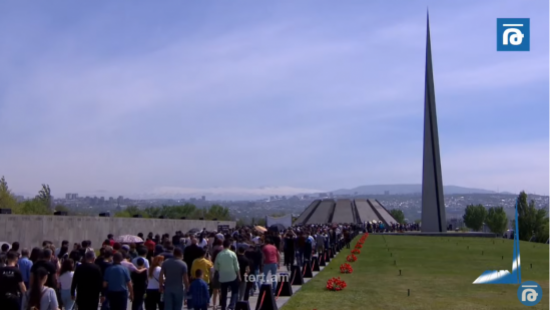
Armenians Commemorating 106th Anniversary of Genocide
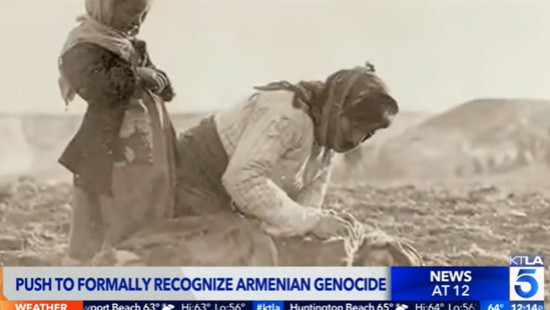
Biden Under Pressure to Recognize Armenian Genocide - KTLA 5 News
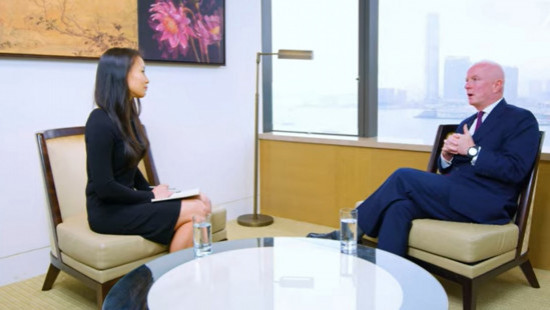
Governance and Oversight Capacities Account for Our Bank's Robust Management System - Philip Lynch, Independent Board Member at Ameriabank

'Mr. President, It Is Now in Your Power to Right Decades of Denial' - US Congressman Adam Schiff Urges Joe Biden to Recognize Armenian Genocide
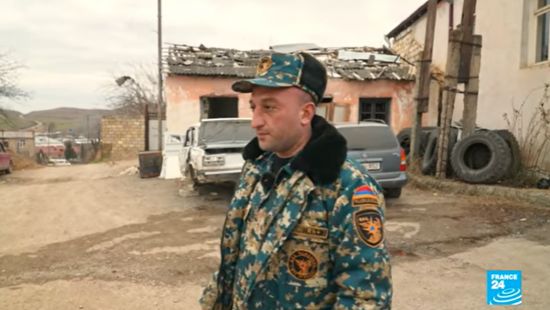
Armenians of Nagorno-Karabakh in Despair After Trauma of Military Defeat - France 24
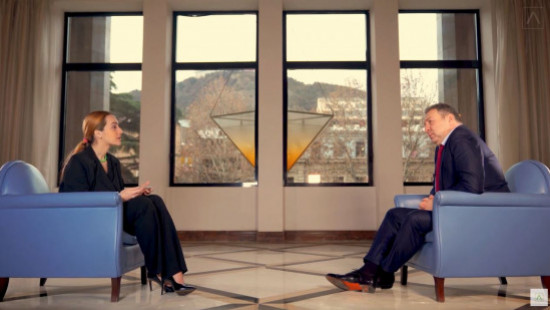
Interview with Kakhaber Kiknavelidze, an Independent Member of Ameriabank Board of Directors

Only Terrorists Keep Hostages, Putting Forward Preconditions for Their Release - Edmon Marukyan

Rep Adam Schiff Says Congress Should Recognize Artsakh
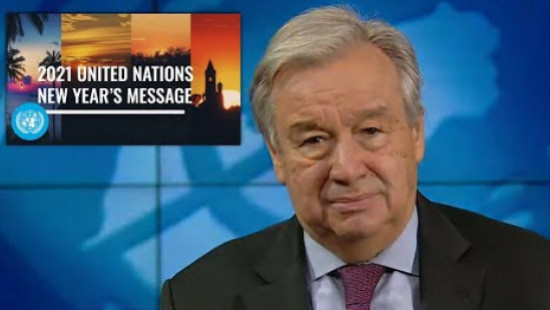
UN's Guterres Issues Global Appeal to Make 2021 'Year of Healing'

NASA's Mars 2020 Perseverance Rover Landing Animations

Azerbaijan Uses Prohibited Phosphorus Chemical Munitions - Defense Army Video

Artsakh Defense Army Units Neutralizing Azerbaijani Arms Supplies

Artsakh Defense Army Units Neutralizing Azerbaijani Drone
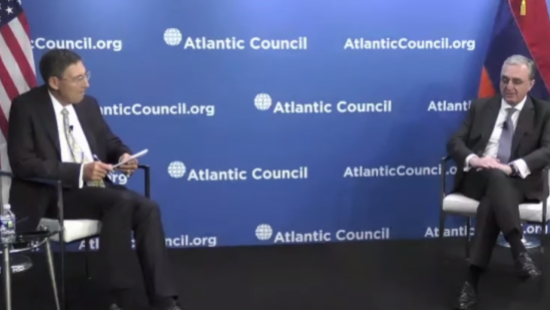
Nagorno-Karabakh's Status Has Been At the Heart of Our Approach - Zohrab Mnatsakanyan

Artsakh Defense Army Releases Video Featuring Damaged Azerbaijani Military Equipment

Artsakh Defense Army Units Inflicting Manpower Losses on Azerbaijan

Gas Pipeline Damaged in Azerbaijani Fire Targeting Nagorno-Karabakh's Capital

President Armen Sarkissian Meets Emmanuel Macron at Élysée Palace

Artsakh Defense Army Neutralizes Azerbaijani Military Hardware
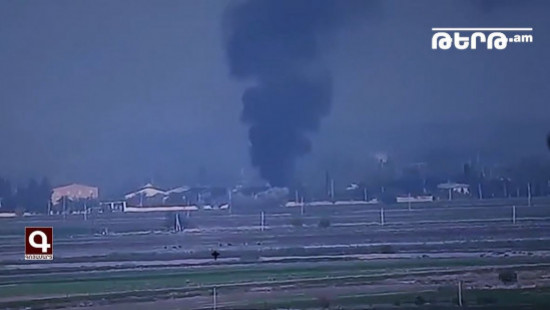
Artsakh Defense Army Units Neutralizing Azerbaijani Military Infrastructures

President Armen Sarkissian Meets with NATO Secretary-General in Brussels
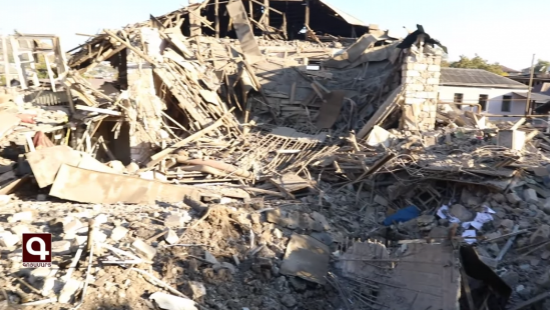
Buildings and Homes Lying in Ruins in Nagorno-Karabakh's Capital After Azerbaijani Shelling
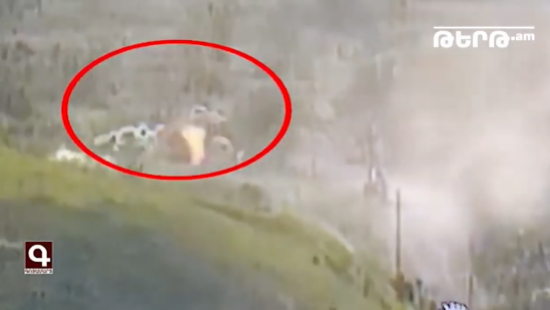
Artsakh Defense Army's Precision Fire Gives Deadly Blow to Enemy
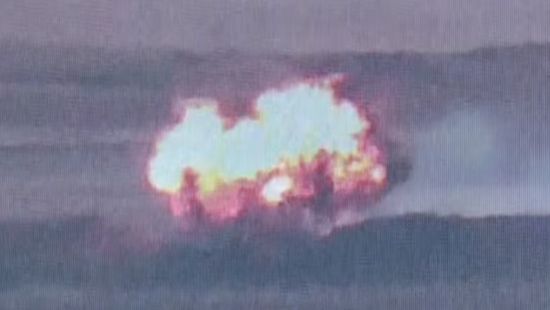
Artsakh Defense Army Units Destroying Azerbaijani Tank

Zohrab Mnatsakanyan: Ceasefire Does not Mandate Azerbaijan to Kill Civilians and Hit Civilian Settlements
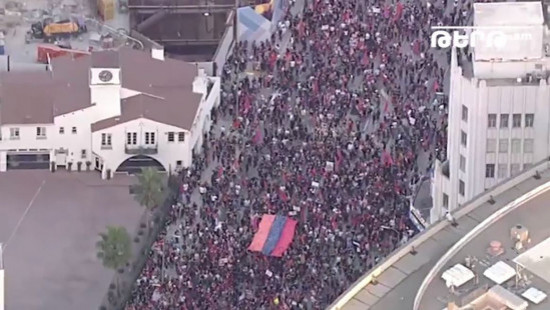
Armenians Protest Outside Turkrish Embassy in Los Angeles
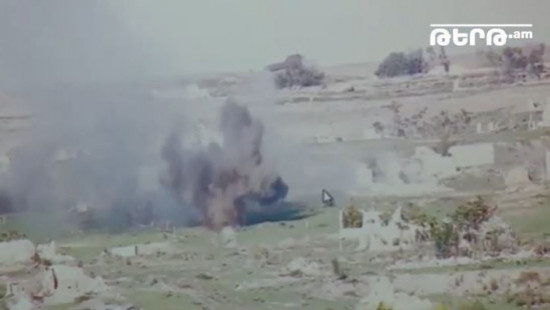
Losses in Azerbaijan's Military Featured in Defense Army Footage
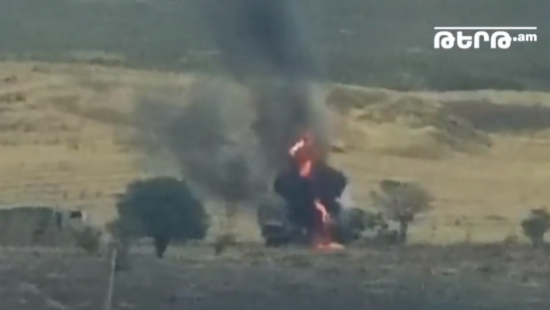
Artsakh Defense Army Neutralizing Adversary's Transport Column
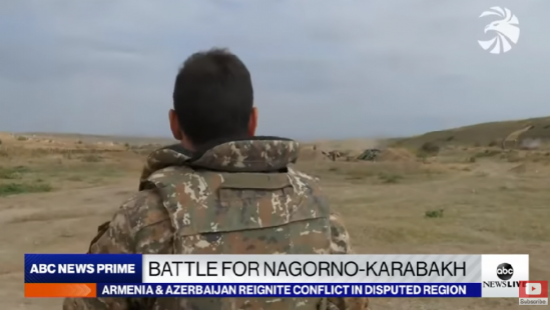
Turkey openly backs Azerbaijan 'far more aggressively than in the past' - ABC News on Syrian mercenaries fighting in Karabakh
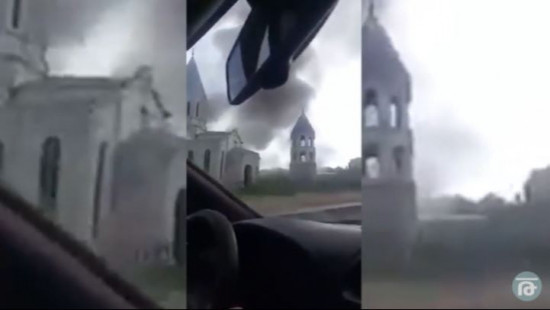
Iconic Armenian Church Hit in Azerbaijani Attacks in Nagorno-Karabakh City (photos)
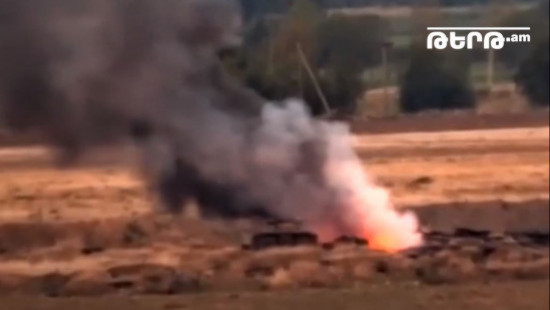
Artsakh Defense Army Continues High-Precision Strikes
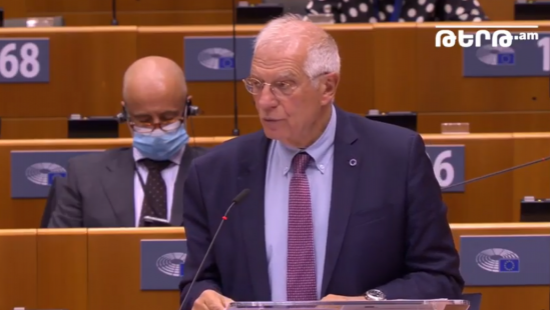
War Situation in Karabakh on European Parliament's Agenda
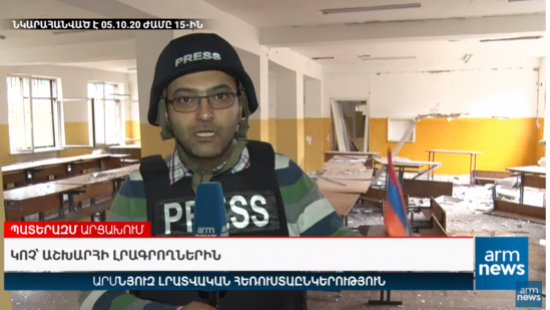
Call for Urgent Action: Armenian Journalist Brings Intn'l Colleagues' Attention to Situation iin Artsakh After Azerbaijani Attacks
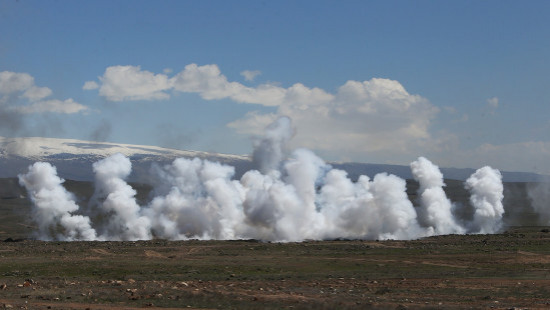
Turkey's Support to Syrian Mercenaries Fighting Against Artsakh: Facts About Azerbaijani Aggression
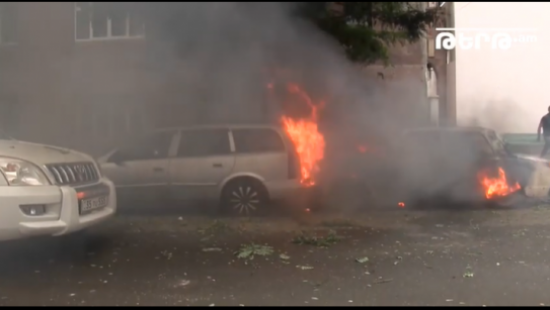
Nagorno-Karabakh's Capital Under Azerbaijani Strikes
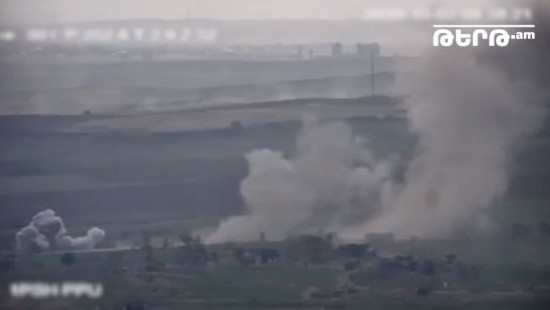
Armenian Armed Forces Neutralize Azerbaijani Defense Positions
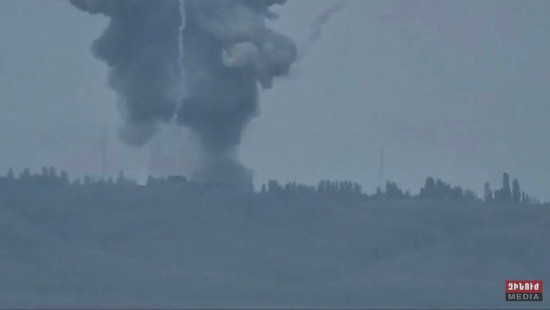
ArmenianTroops Destroy Azerbaijani Armored Fighting Vehicle on Frontline
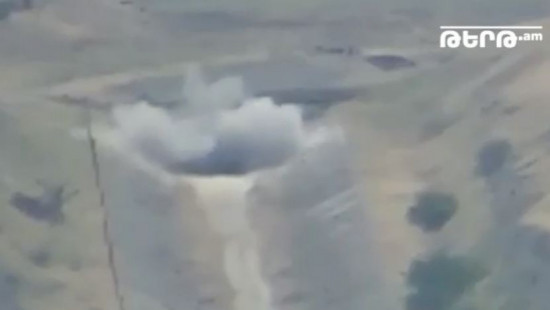
There is a solid evidence that Azerbaijan has launched a thoroughly planned attack on the NKR

EU calls for Immediate End to Hostilities over Nagorno-Karabakh
-
 15:20 • 24.05.21
Interview with Francis Malige, EBRD Managing Director
15:20 • 24.05.21
Interview with Francis Malige, EBRD Managing Director
-
 11:39 • 24.04.21
Armenians Commemorating 106th Anniversary of Genocide
11:39 • 24.04.21
Armenians Commemorating 106th Anniversary of Genocide
-
 09:40 • 23.04.21
Biden Under Pressure to Recognize Armenian Genocide - KTLA 5 News
09:40 • 23.04.21
Biden Under Pressure to Recognize Armenian Genocide - KTLA 5 News
-
 15:34 • 22.04.21
Governance and Oversight Capacities Account for Our Bank's Robust Management System - Philip Lynch, Independent Board Member at Ameriabank
15:34 • 22.04.21
Governance and Oversight Capacities Account for Our Bank's Robust Management System - Philip Lynch, Independent Board Member at Ameriabank
-
 14:09 • 21.04.21
'Mr. President, It Is Now in Your Power to Right Decades of Denial' - US Congressman Adam Schiff Urges Joe Biden to Recognize Armenian Genocide
14:09 • 21.04.21
'Mr. President, It Is Now in Your Power to Right Decades of Denial' - US Congressman Adam Schiff Urges Joe Biden to Recognize Armenian Genocide
-
 12:37 • 03.04.21
Armenians of Nagorno-Karabakh in Despair After Trauma of Military Defeat - France 24
12:37 • 03.04.21
Armenians of Nagorno-Karabakh in Despair After Trauma of Military Defeat - France 24
-
 17:33 • 11.03.21
Interview with Kakhaber Kiknavelidze, an Independent Member of Ameriabank Board of Directors
17:33 • 11.03.21
Interview with Kakhaber Kiknavelidze, an Independent Member of Ameriabank Board of Directors
-
 17:57 • 26.01.21
Only Terrorists Keep Hostages, Putting Forward Preconditions for Their Release - Edmon Marukyan
17:57 • 26.01.21
Only Terrorists Keep Hostages, Putting Forward Preconditions for Their Release - Edmon Marukyan
-
 13:33 • 22.01.21
Rep Adam Schiff Says Congress Should Recognize Artsakh
13:33 • 22.01.21
Rep Adam Schiff Says Congress Should Recognize Artsakh
-
 09:42 • 29.12.20
UN's Guterres Issues Global Appeal to Make 2021 'Year of Healing'
09:42 • 29.12.20
UN's Guterres Issues Global Appeal to Make 2021 'Year of Healing'
-
 18:41 • 24.12.20
NASA's Mars 2020 Perseverance Rover Landing Animations
18:41 • 24.12.20
NASA's Mars 2020 Perseverance Rover Landing Animations
-
 13:33 • 31.10.20
Azerbaijan Uses Prohibited Phosphorus Chemical Munitions - Defense Army Video
13:33 • 31.10.20
Azerbaijan Uses Prohibited Phosphorus Chemical Munitions - Defense Army Video
-
 16:37 • 30.10.20
Artsakh Defense Army Units Neutralizing Azerbaijani Arms Supplies
16:37 • 30.10.20
Artsakh Defense Army Units Neutralizing Azerbaijani Arms Supplies
-
 11:25 • 28.10.20
Artsakh Defense Army Units Neutralizing Azerbaijani Drone
11:25 • 28.10.20
Artsakh Defense Army Units Neutralizing Azerbaijani Drone
-
 13:45 • 24.10.20
Nagorno-Karabakh's Status Has Been At the Heart of Our Approach - Zohrab Mnatsakanyan
13:45 • 24.10.20
Nagorno-Karabakh's Status Has Been At the Heart of Our Approach - Zohrab Mnatsakanyan
-
 11:51 • 24.10.20
Artsakh Defense Army Releases Video Featuring Damaged Azerbaijani Military Equipment
11:51 • 24.10.20
Artsakh Defense Army Releases Video Featuring Damaged Azerbaijani Military Equipment
-
 11:40 • 24.10.20
Artsakh Defense Army Units Inflicting Manpower Losses on Azerbaijan
11:40 • 24.10.20
Artsakh Defense Army Units Inflicting Manpower Losses on Azerbaijan
-
 10:39 • 24.10.20
Gas Pipeline Damaged in Azerbaijani Fire Targeting Nagorno-Karabakh's Capital
10:39 • 24.10.20
Gas Pipeline Damaged in Azerbaijani Fire Targeting Nagorno-Karabakh's Capital
-
 12:41 • 23.10.20
President Armen Sarkissian Meets Emmanuel Macron at Élysée Palace
12:41 • 23.10.20
President Armen Sarkissian Meets Emmanuel Macron at Élysée Palace
-
 12:16 • 23.10.20
Artsakh Defense Army Neutralizes Azerbaijani Military Hardware
12:16 • 23.10.20
Artsakh Defense Army Neutralizes Azerbaijani Military Hardware
-
 12:02 • 22.10.20
Artsakh Defense Army Units Neutralizing Azerbaijani Military Infrastructures
12:02 • 22.10.20
Artsakh Defense Army Units Neutralizing Azerbaijani Military Infrastructures
-
 10:35 • 22.10.20
President Armen Sarkissian Meets with NATO Secretary-General in Brussels
10:35 • 22.10.20
President Armen Sarkissian Meets with NATO Secretary-General in Brussels
-
 10:51 • 17.10.20
Buildings and Homes Lying in Ruins in Nagorno-Karabakh's Capital After Azerbaijani Shelling
10:51 • 17.10.20
Buildings and Homes Lying in Ruins in Nagorno-Karabakh's Capital After Azerbaijani Shelling
-
 15:09 • 15.10.20
Artsakh Defense Army's Precision Fire Gives Deadly Blow to Enemy
15:09 • 15.10.20
Artsakh Defense Army's Precision Fire Gives Deadly Blow to Enemy
-
 13:13 • 13.10.20
Artsakh Defense Army Units Destroying Azerbaijani Tank
13:13 • 13.10.20
Artsakh Defense Army Units Destroying Azerbaijani Tank
-
 12:56 • 12.10.20
Zohrab Mnatsakanyan: Ceasefire Does not Mandate Azerbaijan to Kill Civilians and Hit Civilian Settlements
12:56 • 12.10.20
Zohrab Mnatsakanyan: Ceasefire Does not Mandate Azerbaijan to Kill Civilians and Hit Civilian Settlements
-
 12:23 • 12.10.20
Armenians Protest Outside Turkrish Embassy in Los Angeles
12:23 • 12.10.20
Armenians Protest Outside Turkrish Embassy in Los Angeles
-
 17:23 • 09.10.20
Losses in Azerbaijan's Military Featured in Defense Army Footage
17:23 • 09.10.20
Losses in Azerbaijan's Military Featured in Defense Army Footage
-
 15:53 • 09.10.20
Artsakh Defense Army Neutralizing Adversary's Transport Column
15:53 • 09.10.20
Artsakh Defense Army Neutralizing Adversary's Transport Column
-
 14:11 • 09.10.20
Turkey openly backs Azerbaijan 'far more aggressively than in the past' - ABC News on Syrian mercenaries fighting in Karabakh
14:11 • 09.10.20
Turkey openly backs Azerbaijan 'far more aggressively than in the past' - ABC News on Syrian mercenaries fighting in Karabakh
-
 15:52 • 08.10.20
Iconic Armenian Church Hit in Azerbaijani Attacks in Nagorno-Karabakh City (photos)
15:52 • 08.10.20
Iconic Armenian Church Hit in Azerbaijani Attacks in Nagorno-Karabakh City (photos)
-
 10:57 • 08.10.20
Artsakh Defense Army Continues High-Precision Strikes
10:57 • 08.10.20
Artsakh Defense Army Continues High-Precision Strikes
-
 14:24 • 07.10.20
War Situation in Karabakh on European Parliament's Agenda
14:24 • 07.10.20
War Situation in Karabakh on European Parliament's Agenda
-
 19:31 • 05.10.20
Call for Urgent Action: Armenian Journalist Brings Intn'l Colleagues' Attention to Situation iin Artsakh After Azerbaijani Attacks
19:31 • 05.10.20
Call for Urgent Action: Armenian Journalist Brings Intn'l Colleagues' Attention to Situation iin Artsakh After Azerbaijani Attacks
-
 16:17 • 04.10.20
Turkey's Support to Syrian Mercenaries Fighting Against Artsakh: Facts About Azerbaijani Aggression
16:17 • 04.10.20
Turkey's Support to Syrian Mercenaries Fighting Against Artsakh: Facts About Azerbaijani Aggression
-
 12:39 • 04.10.20
Nagorno-Karabakh's Capital Under Azerbaijani Strikes
12:39 • 04.10.20
Nagorno-Karabakh's Capital Under Azerbaijani Strikes
-
 13:49 • 03.10.20
Armenian Armed Forces Neutralize Azerbaijani Defense Positions
13:49 • 03.10.20
Armenian Armed Forces Neutralize Azerbaijani Defense Positions
-
 10:12 • 29.09.20
ArmenianTroops Destroy Azerbaijani Armored Fighting Vehicle on Frontline
10:12 • 29.09.20
ArmenianTroops Destroy Azerbaijani Armored Fighting Vehicle on Frontline
-
 23:42 • 28.09.20
There is a solid evidence that Azerbaijan has launched a thoroughly planned attack on the NKR
23:42 • 28.09.20
There is a solid evidence that Azerbaijan has launched a thoroughly planned attack on the NKR
-
 18:45 • 28.09.20
EU calls for Immediate End to Hostilities over Nagorno-Karabakh
18:45 • 28.09.20
EU calls for Immediate End to Hostilities over Nagorno-Karabakh
Most popular articles Today Yesterday For a week
-
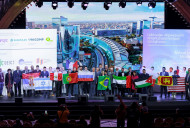 Science/tech 16:55 • 18/11 The Results of the 19th Annual International Microelectronics Olympiad Summarized in Yerevan This year's Olympiad was conducted in two stages, with 332 participants from 16 countries, including the UAE, USA, Brazil, Israel, Italy, Lebanon, Armenia, Jordan, Sri Lanka, Chile, Peru, Portugal, Russia, Serbia, Vietnam, and France.
Science/tech 16:55 • 18/11 The Results of the 19th Annual International Microelectronics Olympiad Summarized in Yerevan This year's Olympiad was conducted in two stages, with 332 participants from 16 countries, including the UAE, USA, Brazil, Israel, Italy, Lebanon, Armenia, Jordan, Sri Lanka, Chile, Peru, Portugal, Russia, Serbia, Vietnam, and France. -
 Event 11:07 • 19/11 “New Career Opportunities and Perspectives”: a career fair will be organized for people of Artsakh The main goal of the event is to support the socio-economic integration of Artsakh residents displaced by the conflict into Armenian society. It aims to enhance their competitiveness in the labor market and address employment challenges.
Event 11:07 • 19/11 “New Career Opportunities and Perspectives”: a career fair will be organized for people of Artsakh The main goal of the event is to support the socio-economic integration of Artsakh residents displaced by the conflict into Armenian society. It aims to enhance their competitiveness in the labor market and address employment challenges.
Economy
-
16:51 • 11.11.24 New features for Armeconombank’s Premium cardholders
-
12:16 • 08.11.24 Ucom and Sunchild NGO install another solar plant in Areni
Event
-
14:40 • 19.11.24 Ucom’s 5G network launched in 11 new cities
Science/tech
-
14:18 • 08.05.24 AstraZeneca withdrawing Covid vaccine worldwide




